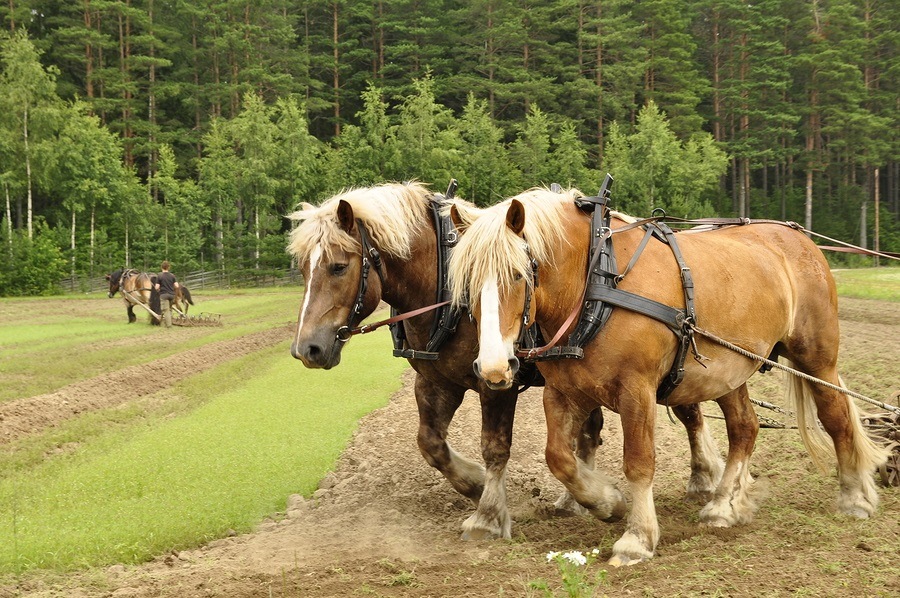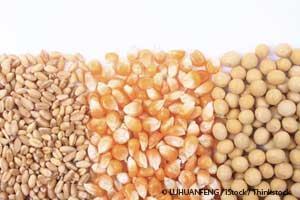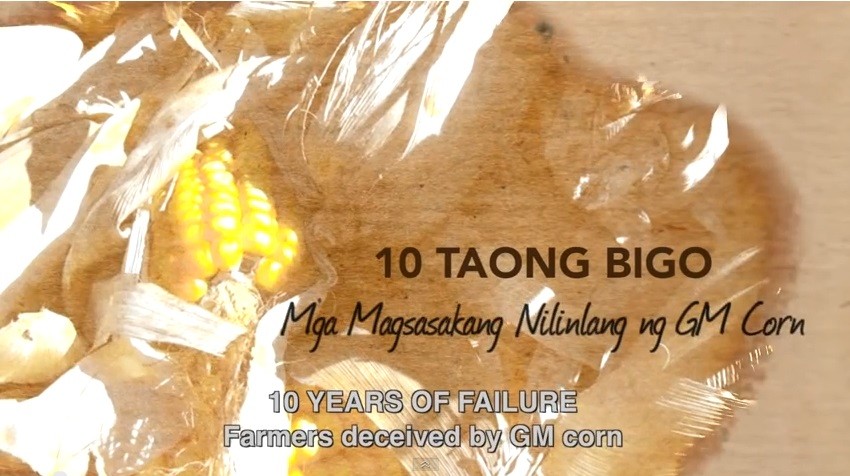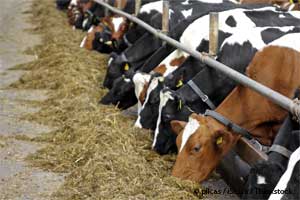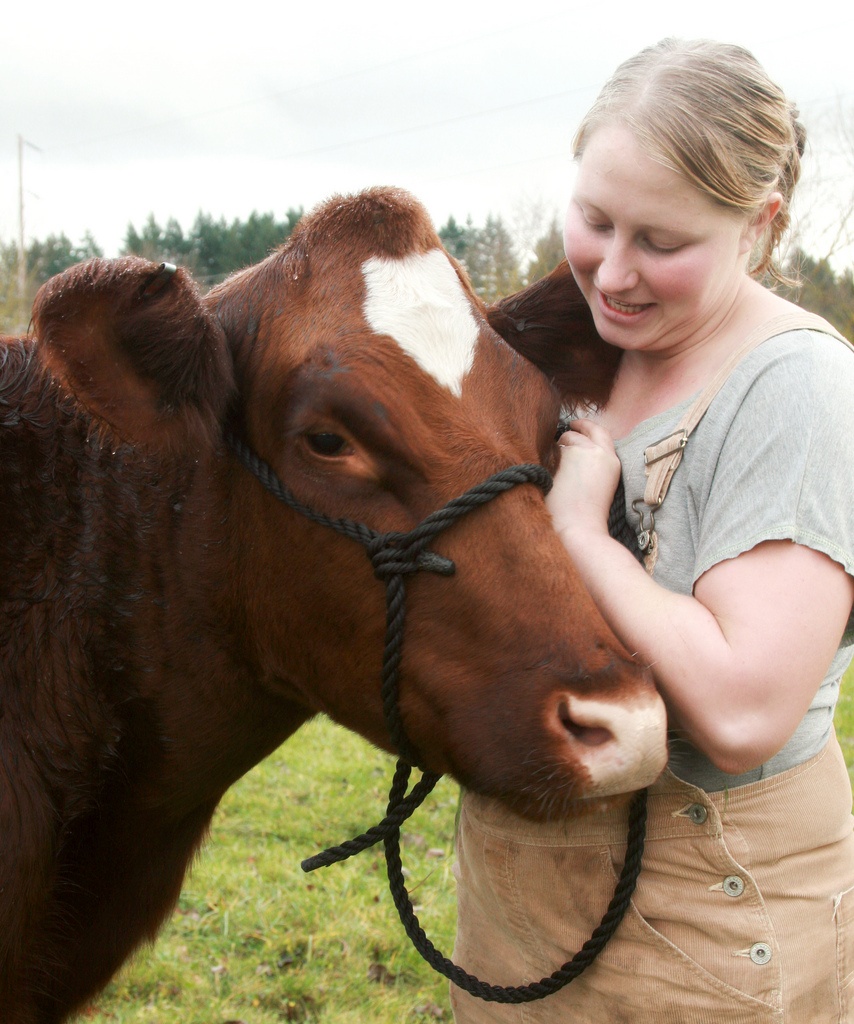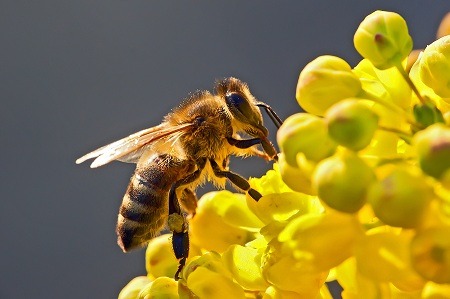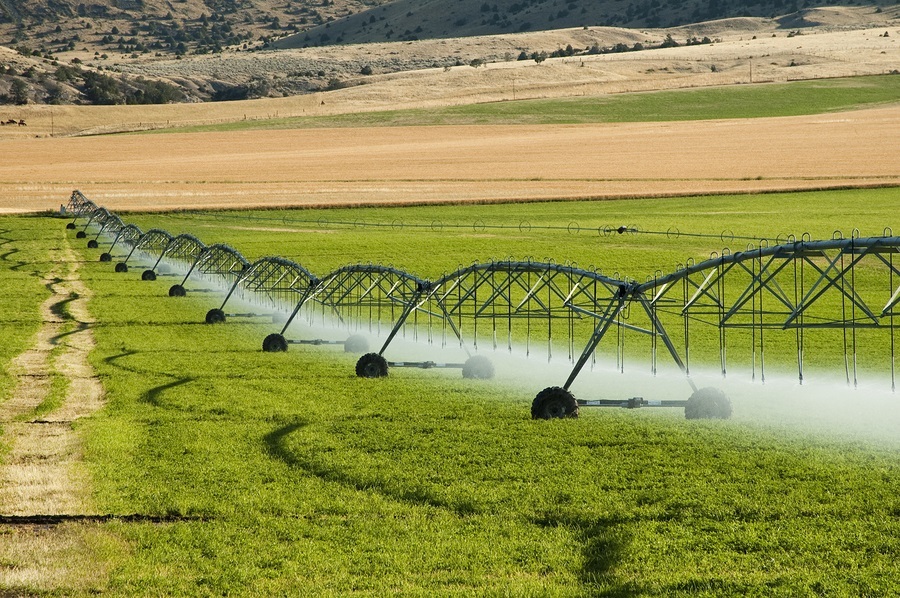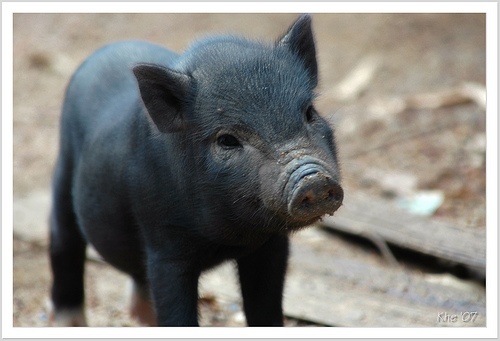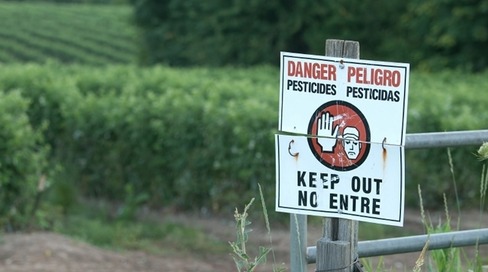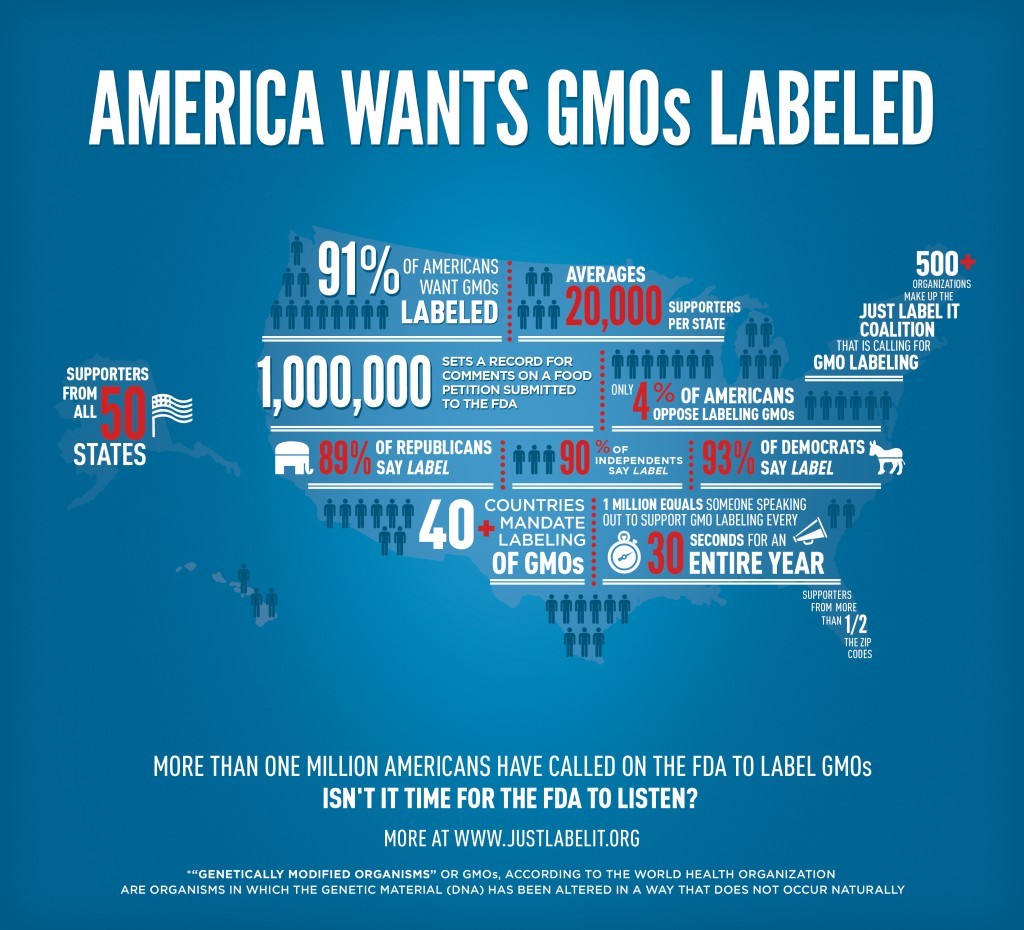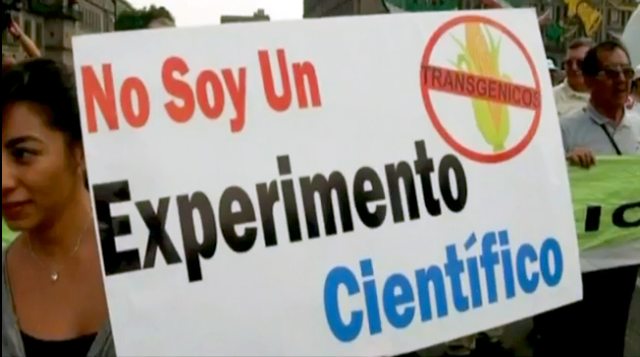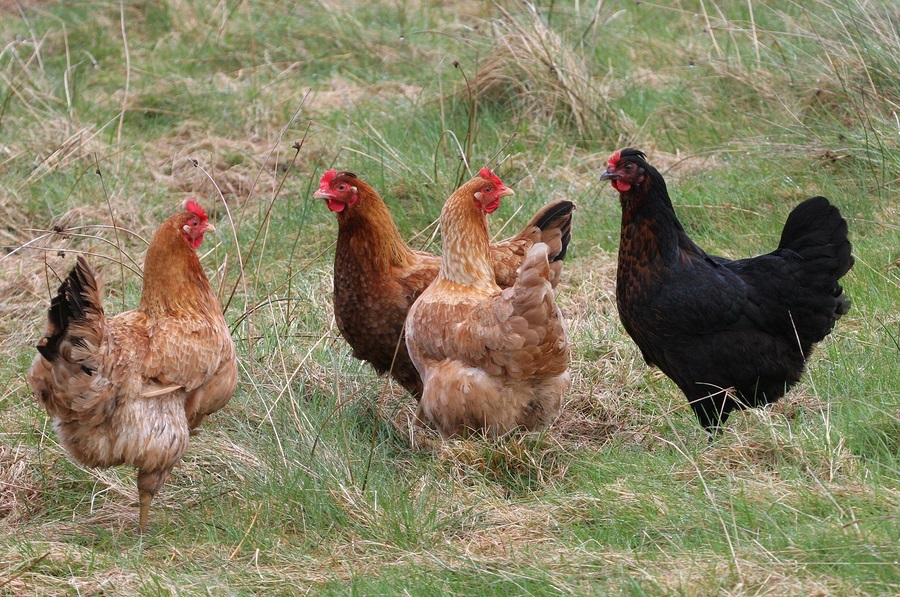News regarding the dangers of GMOs and biotech, and the advantages of organic sustainable agriculture.
FDA Starts to Take Control of American Organic Farms
Jim Crawford started New Morning Farm in Maryland many decades ago. He was young and idealistic. He had little or no money and had to start small. He believed in sustainable agriculture and wanted to produce fresh and healthy produce to sell in farmers’ markets to the urban public. He succeeded and became increasingly well known both for his ideals and his produce. This may be why the FDA picked him out for a site visit. An inspector appeared without warning and told him that his operation would have to change. It didn't matter that no health problem had ever been associated with Crawford’s impeccably run operation. The Food Safety Modernization Act for the first time gave the FDA direct authority over our farms. It should have been obvious to everyone that putting the FDA in direct charge of farms was a terrible idea. Much of the FDA’s budget is paid for by Big Pharma instead of the taxpayers, which creates a serious conflict of interest.
EPA Approves Bt Residues in Soy Foods from GM Crops as Legal
In what could easily be classified as one of the US Environmental Protection Agency’s (EPA) worst decisions yet, a final rule released by the EPA earlier this month creates an exemption for residue tolerance levels of genetically modified (GM) Bt toxin in GM soy foods and feed. Essentially, the Agency has approved unlimited residues of GM Bt toxin in your food!
2014 Farm Bill & the Legalization of Hemp
Editor of Millennial Magazine, Britt Hysen, discusses the 2014 Farm Bill and the legalization of hemp as an agricultural commodity. Hemp is the sterile version of marijuana, and is sold legally in the U.S., but is illegal to grow. The 2014 Farm Bill removed some restrictions for research, but it stopped short of actually legalizing it. One week after the Farm Bill passed, Senators Rand Paul and Mitch McConnell of Kentucky introduced legislation to allow American farmers to cultivate and profit from industrial hemp. The Industrial Hemp Farming Act of 2013 would remove federal restrictions on the domestic cultivation of industrial hemp. Specifically, the bill would remove hemp from the Schedule I controlled substance list under the Controlled Substances Act of 1970, and would define it as a non-drug so long as it contained less than 0.3 percent tetrahydrocannabinol (THC). Prior to World War II, Kentucky provided 94 percent of the nation's industrial hemp. Today the U.S. is the world's largest consumer of hemp, but it remains the only major industrialized country that bans farming the product. U.S. imports have consistently grown over the past decade - increasing by 300 percent over that period.
Loophole in the Regulation of GMOs Allows Scotts Company to Commercialize Unregulated and Unapproved GM Kentucky Bluegrass
In July 2011, the USDA gave GMOs a regulatory hall pass. The agency determined that, thanks to a tiny technical loophole, they had no oversight over GMO Kentucky bluegrass. This meant that the grass—and any GMOs created via the same GMO technique—could be planted anywhere, at anytime, with zero government oversight. Late last month, Scott’s Miracle-Gro quietly announced that their employees will “test” the Roundup-resistant GMO grass by planting it in their home lawns in Marysville, Ohio. Scott’s hopes to have thousands more consumers planting their GMO grass by 2016—and thanks to the USDA, there’s no framework in place to keep this from happening. Alarmingly, if your neighbor plants GMO grass, your lawn may become full GMOs, too. Cross-contamination of non-GMO crops is already a reality. Pollen can travel anywhere from the length of three football fields to thousands of miles away. Given this, and the fact there’s little to no space between suburban lawns—it’s completely unrealistic to assume GMO grass will stay where it’s planted.
10 Years of Failure: Farmers in the Philippines Deceived by GM Corn
The Philippine group MASIPAG (Farmer-Scientist Partnership for Development) released a mini documentary on the deception and 10-year failure of GM corn in the Philippines. That same day, executives from Monsanto and Syngenta were awarded the Nobel award "World Food Prize" for their contribution to GM seed technology. “It is quite tragic that on World Food Day, huge agrochemical companies who wrested away farmers’ rights on seeds, caused environmental degradation and pollution of our valuable genetic resources are put in high regard, while small and resource-poor farmers who nurtured the seeds and who feed the population are left landless and hungry.”
Antibiotic Resistant Diseases? Blame the FDA and Their Protection of Big Pharma in Animal Feeds
The US Food and Drug Administration (FDA) has known for more than 12 years that routine use of antibiotics in livestock is harmful to human health, yet it has taken no meaningful action. Routine use of antibiotics in food animals has promoted a rapid rise in antibiotic-resistant disease, which now claims more lives than emphysema, HIV/AIDS, Parkinson’s disease, and homicide combined. Two million American adults and children become infected with antibiotic-resistant bacteria each year, and at least 23,000 of them die as a direct result of those infections. Virtually all animal feed additives containing penicillin and tetracycline antibiotics—both of which are used to treat human disease—pose a “high risk” to human health, according to a new report. Many bacteria are developing cross resistance; a situation where a bacteria becomes resistant to multiple drugs, making them virtually impossible to eradicate once they infect you.
Oregon Farmer Wins Case Challenging Raw Milk Advertising Ban
The Oregon Department of Agriculture today agreed to stop enforcing that state’s ban on the advertisement of raw—or unpasteurized—milk. This comes in response to a Nov. 2013 federal lawsuit filed by Christine Anderson, owner of Cast Iron Farms in McMinnville, Ore. Until today, it was illegal for farmers like Christine to advertise that they sell raw milk, a perfectly legal product. This meant that Christine was banned from posting flyers at local stores, advertising sales online or via email, or displaying a roadside sign at the farm saying “WE SELL RAW MILK.” Christine was even ordered in 2012 to take down prices for her milk from the Cast Iron Farm website. If she did advertise her raw milk, she faced $6,250 in fines and civil penalties as high as $10,000—plus a year in jail.
Monarch Butterfly Numbers Drop to Lowest Level Since Records Started – GMO Crops Blamed
The monarch butterfly — an orange and black icon that is Minnesota’s state insect — is facing dire population declines that have resulted in the smallest wintertime habitat since surveys began in 1993, an international team of conservation scientists warned Wednesday. This year, conservationists say the area where the butterflies winter in Mexico was reduced by 44 percent, to just 1.7 acres. Karen Oberhauser, a University of Minnesota entomologist who’s spent 30 years studying the butterflies, says the expansion of genetically modified crops in the Corn Belt is the primary culprit behind precipitous monarch declines over the past three years. These crops allow farmers to use herbicides later in the growth cycle, which has led to vast reductions in native milkweed and nectar plants that the butterflies rely on during the breeding cycle. The monarch’s decline may be an indicator of larger ecological problems, she said. “What is happening to monarchs is also happening to many other uncounted organisms — organisms whose loss would be equally tragic,” Oberhauser said.
Cut Flowers: A Major Yet Little-Known Source of Toxic Pesticides
Are you giving toxic flowers to your sweetheart? Cut flower growers are among the heaviest users of agricultural chemicals, including pesticides that are suspected of being among the most toxic. The pesticide problem is not restricted to cut flowers. More than half of garden plants attractive to bees and sold at Home Depot and Lowe’s are pre-treated with pesticides that could be lethal to bees. Learn how to get safe, non-toxic flowers.
Organic Farms are Home to Around 30 percent More Wildlife Species
Organic farms are home to around 30 per cent more wildlife species than conventional farms, a meta-analysis of nearly 100 studies by researchers form the University of Oxford and from Sweden and Switzerland has found. "This result has been robust over the last 30 years of published studies and shows no sign of diminishing," they concluded. They also noted: "The effect size varies with the organism group and crop studied, and is greater in landscapes with higher land-use intensity," while the effect was also smaller in orchards and vegetable fields than on arable land. But pollinating insects showed an even more marked benefit from organic practices, with species numbers around 50 per cent higher.
New Farm Bill Sneaks in Dangerous Fluoride Amendment
Capitol Hill’s most powerful special interests resorted again to underhanded tactics. The Senate just passed the $1 trillion dollar Farm Bill with a vote of 68 to 32 (the House gave its approval last Wednesday). As you may recall, the most recent version of this cumbersome bill had serious ramifications for farmers, GMO labeling, and consumer access to locally sourced foods. What that earlier version didn’t have was an amendment that will expose Americans, and especially children, to dangerous amounts of fluoride residue—yet such an amendment was somehow snuck into the final, 949-page Farm Bill just forty-eight hours before it went to vote.
Stop the GMO Apple
If you haven’t heard, apples are the single most popular fruit served in school lunchrooms across the U.S. and a fruit so iconic it was the fruit that inspired Isaac Newton’s theory of gravity and the heartbeat of the phrase, "as American as apple pie"! Tragically, a Canadian firm has created a new GMO apple, using a new “gene silencing” technique that could interfere with the expression of genes in humans, even silencing vital human genes, potentially causing serious health problems. Right now, the Obama administration is considering the approval of the world’s first genetically engineered apple, known as the ArcticApple®, which has been engineered to silence the natural browning enzyme that may help apples fight disease and pests.
Family Farm in Michigan Threatened with Armed Enforcement from DNR for Raising Heritage Pigs
Mark Baker of Baker Green Acres gives an update on their ongoing battle with the State of Michigan regarding their heritage breed free range hogs. Their case might be reaching a dangerous point with the State of Michigan, as Mark is reporting that a USDA field agent has stated in writing that Mark is a "gun-waving lunatic" and that the USDA would not come to visit his farm, but that "armed DNR agents" will come instead. Health Impact News has reported on the Baker Green Acres family farm situation since April 2012, when the DNR decided to label all free range hogs in the State of Michigan as illegal, by classifying them as "feral" pigs. Mark and others have reported that the new definition of "feral swine" adopted by the DNR in 2012 came directly from the commercial pork industry, which raises all commercial pork indoors in confinement. Since the State made it a criminal offense to keep their heritage breed hogs that have now been ruled illegal, most hog ranchers destroyed their herds and went out business. They did not want to face arrest on criminal charges. Mark Baker decided to challenge the ruling, however, and has been involved with a long legal battle with the State of Michigan since then. Various actions have been taken against the Baker family to try and force them out of business, such as levying a fine of $700,000 against them, and getting the USDA to refuse to process their pork at a USDA processing facility, effectively eliminating most of their market to sell their pork. Now, with court case getting closer, Mark is worried that since they believe they have such a strong case against the State, they may try something else before he gets his say in court. As you watch the video below for the latest update, he will explain that he and his family are peaceful people, and portraying him as "gun-waving lunatic" is not true.
Dow Chemical Readies for a New Era of Superweeds – By Getting USDA to Approve Older Toxic Pesticide for GMO Seeds
One of the empty promises originally made when genetically modified technology was developed was that crops would need fewer pesticides. More than ten years later, however, we are seeing that not only have the genetically modified seeds developed resistance to pesticides, but so have many weeds, as we are seeing a new breed of superweeds that are resistant to Monsanto's glyphosate (Round-up Ready). Now, Dow Chemical has petitioned U.S. regulators to allow them to use an older pesticide on their genetically modified corn and soybean seeds, 2,4-D, which was part of the infamous "Agent Orange". Agent Orange was the Vietnam War defoliant that was blamed for numerous health problems suffered during and after the war. Although the main health effects of Agent Orange were blamed on the other component of the mixture (2,4,5-T) and dioxin contamination, critics say 2,4-D has significant health risks of its own. Earlier this month (January 2014), the USDA gave Dow Chemical the green-light to proceed after issuing an Environmental Impact Statement.
GMO Golden Rice: Myth, not Miracle
Wheat is a main staple in the diet of many cultures, and hence getting approval to grow GM wheat is one that has eluded Monsanto and others until now. Once released into the environment, there is no turning back. Last year it was reported that some GM wheat had turned up in a farmer's field in Oregon, the result of a field trial years earlier. But so far, there is no evidence that there has been widespread "drift" from GM wheat trials. One grain that is a staple in more people's diets than even wheat, is rice. Like wheat, the trend towards developing new breeds of GM rice have been rather cautious, knowing how many people in the world's population can be affected once the crop is out in the wild. GM Golden Rice was developed with the hope that it could provide vitamin A through beta carotene, but the project was a huge disaster and basically shelved for years. But then Bill Gates came along, the college drop out billionaire that started Microsoft Corp., looking for something to spend his billions of dollars to promote. All of a sudden, with big money providing jobs to pursue a failed project, GM Golden Rice has new life. Thanks to GM Watch, we have some real information about Golden Rice, and its danger to Asia and the rest of the world.
Should the Federal Government Mandate GMO Labeling?
The video here is Joel Salatin's speech making the claim against federal initiatives to label GMO foods. He spoke in a debate with Dr. Mercola, who presented the pro-government labeling side. The debate was a fund-raising event sponsored by the Farm to Consumer Legal Defense Fund in Atlanta. It should be noted that both persons debating are friends, and opposed to GMOs. Both sides actually make great points, but Salatin's message is the one less heard. He posted the transcript on the Polyface Farm Facebook Page here, which we copied below. It is a message that needs to be heard by all concerned about GMO products, and the dangers of relying on a government largely influenced by lobbyists from Big Ag and Big Food to do something to "protect" consumers.
Big Processed Food Companies Look to Eliminate GMO Labeling
Politico broke a story last week showing how the Grocery Manufacturers Association, which represents such processed food giants as ConAgra, PepsiCo and Kraft, is trying to preempt state GMO labeling laws by formulating a bill at the national level. While the story in Politico mentions that this is a bill that could reach the floor sometime later this year, it is good to be aware of this potential strategy in case we see it end up as a rider or amendment in the current Farm Bill currently under debate. Should ANY legislation be passed at the national level, either preventing or requiring, GMO labeling?
OSHA Inspectors Target Family Farms
As the new Farm Bill may be coming up for a vote any day now, it is important to understand that our current agricultural laws and farm subsidies favor Big Ag, and not small farms. As direct from the farm to consumer sales, such as Farmer Markets, continue to grow in the U.S., expect to see more stories like this, where Big Ag wields its influence in government to stifle or eliminate the competition.
Mexican Judge Throws out Monsanto Appeal to Challenge GMO Corn Ban
Last October we reported about a judge in Mexico who ordered Monsanto and Pioneer to stop selling genetically modified seeds, banning the planting of genetically-engineered corn in Mexico. Sustainable Pulse has reported now that an appeal to the ban made by Monsanto has been thrown out by another Mexican judge.
Veteran Prosecuted for Keeping Chickens in Backyard
A town in Iowa prosecuted a veteran who was keeping a few chickens in his back yard, trying to raise healthy food for his family. He was censored during the trial from testifying about the health benefits of home-grown food, or testifying to the fact that all his neighbors supported him. Learn more about why there is a growing movement around the U.S. by American families who want to raise their own fresh healthy food, and are fighting city ordinances for the right to do so.




